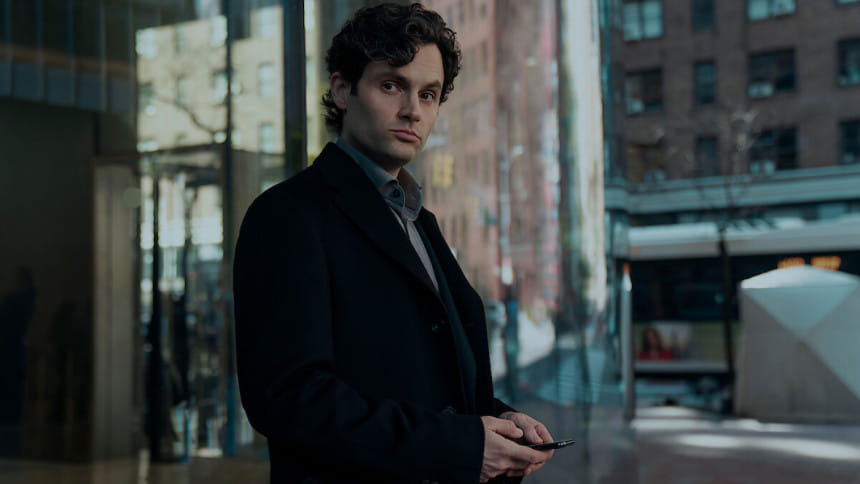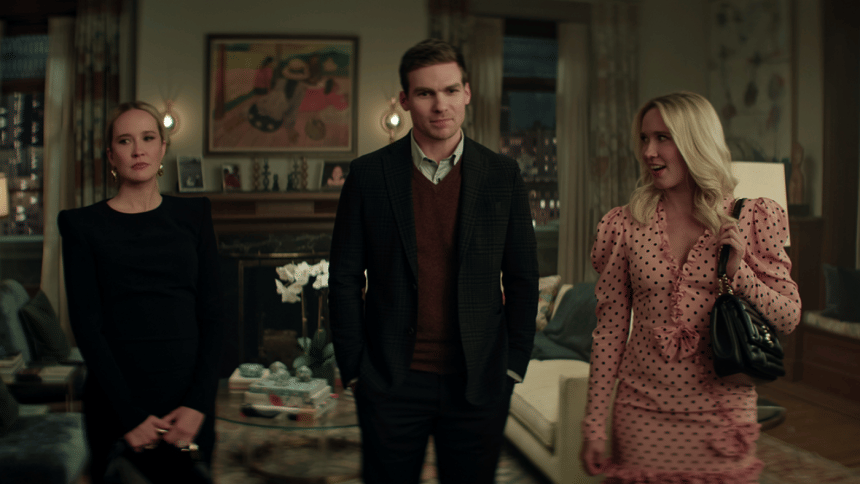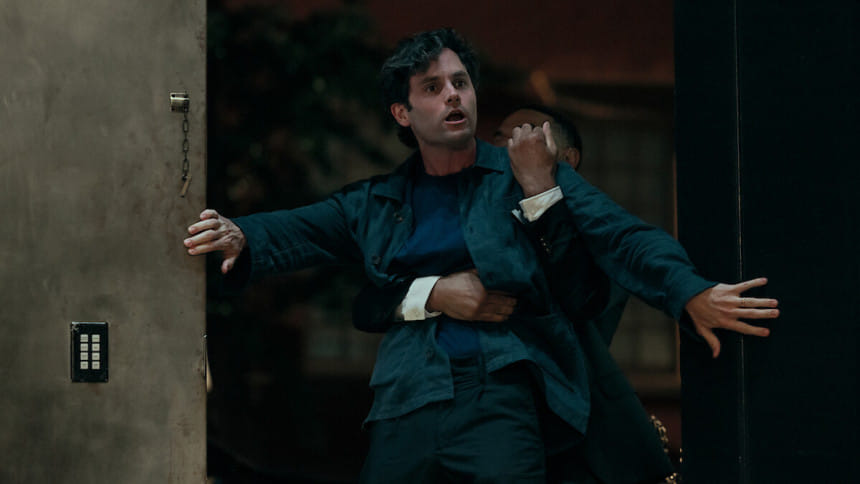‘You’ Season 5: He keeps us watching one last time

It may safely be said that few characters in contemporary shows have managed to disturb and captivate audiences in equal measure, the way Joe Goldberg has. Across five seasons of Netflix's psychological thriller "You", Joe – played with eerie precision by Penn Badgley – has stalked, manipulated, and murdered his way through several dream cities. From the literary enclaves of New York to the sunlit superficiality of Los Angeles, and from suburban chaos to the gothic eeriness of London, his journey has been as much about place as it has been about pathology. In the final season, the show returns to its original setting, New York City, and in doing so, reclaims the sharpness and thematic coherence that initially made it a breakout success.

This time around, Joe is once again Joe Goldberg. Not Will Bettelheim. Not Jonathan Moore. Not Rhys Montrose. The shifting identities that have long allowed him to evade consequence fall away as he resumes his life in the city that made him, or, more accurately, revealed him. Now married to Kate Lockwood (Charlotte Ritchie), a billionaire heiress determined to redeem her family's legacy through philanthropy, Joe has, on the surface, settled into a life of domesticity and privilege. He is also reunited with his son, Henry, raising him as part of a newly constructed nuclear family. Yet despite the curated calm, it takes only a few narrative beats for the illusion to unravel. When Kate's charitable ambitions bring her back into contact with her morally dubious family, a group of hyper-privileged, manipulative elites, Joe's compulsions begin to reawaken. A key catalyst is Kate's half-sister, Reagan, portrayed by Anna Camp, who also takes on the role of Reagan's twin, Maddie. Camp's dual performance is one of the season's greatest strengths, allowing the show to indulge in both satire and menace. Reagan is cold, caustic, and ruthlessly strategic, while Maddie offers a sugary, albeit naive, contrast. Together, they form a new battleground for power and perception within the Lockwood empire.

Season 5 plays heavily with the trappings of prestige TV, echoing "Succession" in its depiction of corporate power plays, familial backstabbing, and dynastic ambition. However, "You" has always been a deeply psychological story. Joe is less a participant in high-stakes boardroom drama than an unreliable narrator whose skewed morality places him in constant conflict with reality. The show's brilliance lies in the fact that viewers are offered front-row seats to his internal justifications, rationalisations, projections, and self-mythologising, and yet many still find themselves inexplicably rooting for him. It is exactly the form of contradiction this show has mastered over five seasons. Joe is, objectively, a monster, a stalker, a manipulator, a killer, but Badgley's performance tempers that monstrosity with just enough vulnerability and charisma to leave room for unease. Audiences are made complicit in his perspective, even when it veers into the unforgivable. In Season 5, that moral tightrope is walked more confidently than in the past. Unlike Season 4, which was criticised for its detour into noir-esque hallucinations and a quasi-antihero redemption arc, this final instalment dispenses with narrative gimmickry and refocuses on the core question: Can Joe ever truly escape himself?

The answer, of course, is no. The season's introduction of Bronte (Madeline Brewer), a bright, enigmatic playwright with a fascination for literature – and, notably, Guinevere Beck's posthumous novel – becomes the thread that unravels Joe's final façade. Bronte is different from the women Joe has previously fixated on. Her intelligence and self-awareness challenge him, her secrets disorient him, and their chemistry echoes the electricity of the show's earlier seasons. Brewer delivers a layered performance that keeps viewers guessing; she is neither victim nor predator in the traditional sense, and her evolution throughout the season suggests a narrative subversion that "You" has sorely needed. This time, the body count is lower, the violence more restrained, the kills more calculated, and the psychological stakes much higher. This tension comes from Joe's deteriorating ability to maintain the image he has worked so hard to create. No longer a shadowy outsider, Joe is now a recognisable public figure by virtue of his marriage, and with recognition comes vulnerability. His anonymity was once his greatest shield; now, every move he makes carries the weight of exposure.

Directorally, the season benefits from a more grounded visual style. New York is no longer just a backdrop but a character, pulsing with energy and memory. The return to Mooney's bookstore, complete with its infamous underground glass cage, is more than a nostalgic callback. It serves as a metaphor for Joe's entrapment. No matter how far he travels, how many names he adopts, or how desperately he tries to reinvent himself, he remains tethered to his past and his need for control. Season 5 also excels in closing narrative loops without resorting to sentimentality. Familiar faces reappear in clever, often unsettling ways, be it through flashbacks or confrontations. Rather than tie everything into a neat bow, the show acknowledges the unresolved messiness of Joe's past.

Finally, "You" ends without betraying its thematic core. There is no redemption arc shoehorned in, nor is there an attempt to sanitise Joe's crimes. He remains a deeply flawed and dangerous man, perhaps more so now, as he has learned to rationalise his violence as an act of loyalty or love. The final scenes hint at the potential for future chaos, even as the narrative suggests a conclusion. It reminds us of what made the series so compelling in the first place – its unsettling proximity to the inner mind of a killer, its ability to critique modern romance, class, and obsession through a sharp, stylised lens, and its refusal to let the audience off the hook. Joe Goldberg is not a hero or even an antihero. He is a product of a world that rewards charm over character, appearance over accountability. In holding up that mirror, "You" undoubtedly remains one of the most provocative psychological thrillers of its time.

 For all latest news, follow The Daily Star's Google News channel.
For all latest news, follow The Daily Star's Google News channel. 






Comments